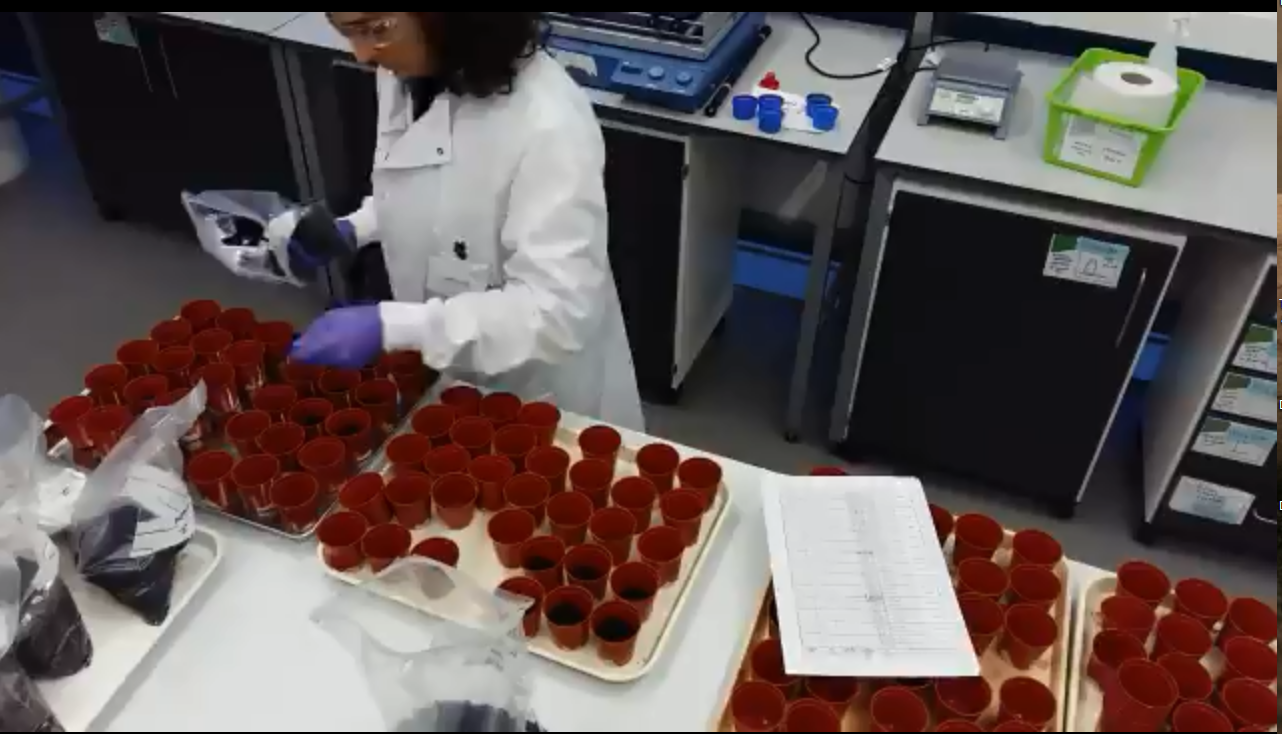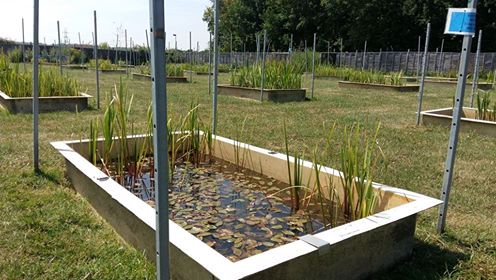My visit to the Cambridge Environmental Assessment
22/08/2018

Working hard setting up experiments, getting the expected results, and publishing your work in great journals are all key goals for a researcher; however, communicating your research outside academia is also a professionally valuable experience. On 6th July, I had the chance to present my work and learn more about the great work that they do at Cambridge Environmental Assessment (CEA).
Cambridge Environmental Assessment is located in the picturesque countryside location of Boxworth, Cambridge. The Ecotoxicology team and Adrian Terry (head of CEA) were very pleased to meet me and discuss my work. I was interested in understanding the implications of my research in the environmental sector, and to gain insight into the roles and responsibilities of different pathways outside academia.
During the last year of my PhD (part of REMEDIATE), I have been focused on linking bioavailability of complex chemical mixtures to toxicity changes, providing multiple lines of evidence to inform risk management decisions at contaminated sites. Therefore, I presented my work on an experimental set-up where contaminated soils, collected from former gas work sites were treated with amendments (biochar or compost) incubated for 6 months, and their toxicity evaluated thought different ecotoxicological assays. The CEA team was very engaged, asked a lot of questions and provided valuable feedback on my work.

Eco-toxicological assays earthworms acute toxicity test (Location: Cranfield University)
Throughout the day Dr. Adrian Terry presented/introduced the CEA team (which includes experts in environmental fate and behaviour, exposure and spatial modelling, ecotoxicology and toxicology), and explained the overall aim and objectives of the company.
Dr. Hanna Schuster, presented the current work on over 200 outdoor aquatic mesocosms (flat-bottomed or sloped) to simulate different edge-of-field environments with a focus on plants and invertebrates (e.g; in-house identification of freshwater phytoplankton, periphyton, macrophytes, zooplankton, and macroinvertebrates). Hanna also guided me through the facility to visit their mesocosms set-up for bespoke higher-tier aquatic studies.

Mesocosms setup for bespoke higher-tier aquatic studies (Location: CEA)
Dr. Nadine Taylor, presented a range of different works including the very interesting research projects she developed during her PhD and postdoc using molecular high throughput techniques and physiological endpoints to determine ecosystem changes to environmental stress.
I would like to express my sincere thanks to my sponsor for providing funding for my training and networking opportunities; and to the ecotoxicology team and Adrian Terry for hosting me at CEA and appreciating my research work.
It was a great day for me to network and discuss my work with experts in the field, and hopefully future collaborations will arise from this meeting.
If you would like to learn more please visit https://www.cranfield.ac.uk/research-projects/remediate
Links
Note: Top photo located within Cranfield University.
Categories & Tags:
Leave a comment on this post:
You might also like…
Keren Tuv: My Cranfield experience studying Renewable Energy
Hello, my name is Keren, I am from London, UK, and I am studying Renewable Energy MSc. My journey to discovering Cranfield University began when I first decided to return to academia to pursue ...
3D Metal Manufacturing in space: A look into the future
David Rico Sierra, Research Fellow in Additive Manufacturing, was recently involved in an exciting project to manufacture parts using 3D printers in space. Here he reflects on his time working with Airbus in Toulouse… ...
A Legacy of Courage: From India to Britain, Three Generations Find Their Home
My story begins with my grandfather, who plucked up the courage to travel aboard at the age of 22 and start a new life in the UK. I don’t think he would have thought that ...
Cranfield to JLR: mastering mechatronics for a dream career
My name is Jerin Tom, and in 2023 I graduated from Cranfield with an MSc in Automotive Mechatronics. Originally from India, I've always been fascinated by the world of automobiles. Why Cranfield and the ...
Bringing the vision of advanced air mobility closer to reality
Experts at Cranfield University led by Professor Antonios Tsourdos, Head of the Autonomous and Cyber-Physical Systems Centre, are part of the Air Mobility Ecosystem Consortium (AMEC), which aims to demonstrate the commercial and operational ...
Using grey literature in your research: A short guide
As you research and write your thesis, you might come across, or be looking for, ‘grey literature’. This is quite simply material that is either unpublished, or published but not in a commercial form. Types ...






